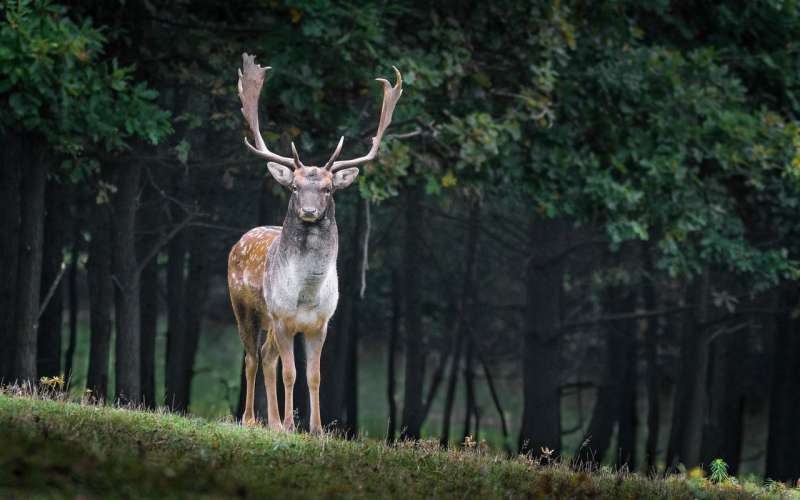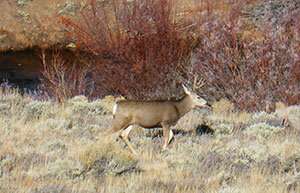Research outlines innovative legal strategies for conserving big-game migration corridors

A new interdisciplinary study led by University of Wyoming researchers brings together approaches from ecology, economics and law to explore emerging big-game migration corridor conservation strategies meant to protect the phenomenon of migration across vast and complex landscapes.
The research was published in the Duke Environmental Law & Policy Forum under the title "Where the Deer and the Antelope Play: Conserving Big Game Migrations as an Endangered Phenomena."
The law review article provides detailed information about migration ecology and economic principles relevant to conserving migrations, before examining the successes and shortcomings of existing legal and policy efforts. Finally, the paper outlines a potential future legal approach with promise to both meet the biological needs of migratory species and address the economic and social challenges of conserving species that cross many jurisdictional boundaries throughout their yearly movements.
Temple Stoellinger, an assistant professor and Wyoming Excellence Chair in the UW Haub School of Environment and Natural Resources and College of Law, led the study. Two professors from the UW Department of Economics, Heidi Albers, Wyoming Excellence Chair of Conservation Economics, and Jason Shogren, Stroock Chair of Natural Resource Conservation and Management, also contributed, along with Arthur Middleton, of the University of California-Berkeley, and Robert Bonnie, of Duke University's Nicholas Institute for Environmental Policy Solutions.

"As policymakers are wrestling with the challenge of protecting long-distance wildlife migrations across the West, this research takes a careful look at the various strategies being employed to find efficiencies and also identify approaches that stand to really achieve the goal of keeping migrations intact," Stoellinger says. "This is necessarily an interdisciplinary endeavor, and working with scholars from different disciplines brought clarity to this question that could not have been found otherwise."
Ecological studies have made it clear that migrations—which are declining in some areas—are critical to sustaining the robust populations of mule deer, elk, pronghorn, moose, bison and bighorn sheep that Americans treasure. Some Western states and the U.S. Department of Interior have developed policies to protect long-distance wildlife movements, but these only apply to a few species and have struggled to balance coordination across large landscapes and multiple jurisdictions with local knowledge and implementation expertise.
"[D]eveloping a more explicit, coordinated policy to address these challenges and improve protection of migratory ungulates is a complex undertaking, compounded by the landscape scale and transboundary nature of migration, and the different views and values stakeholders place on migration conservation both at a local and national level," the authors wrote.
The researchers argue for a cooperative federalism approach that would balance the need for national funding and coordination with local expertise and implementation. Specifically, they suggest defining a stronger federal policy to more effectively guide local implementation of conservation action across political jurisdictions; address conservation across state and international borders; incorporate national and local values into policy development; and provide a stable and dedicated funding source for conservation efforts, particularly for incentive-based conservation and to address highway reconstruction costs.
The researchers also emphasize the need for states and tribes to identify and designate critical migratory corridors and seasonal habitat in need of protection, and to work with private landowners to implement incentive-based conservation on private land.
More information: Temple Stoellinger et al., Where the Deer and The Antelope Play: Conserving Big Game Migrations As an Endangered Phenomena, 31. Duke Environmental Law & Policy Forum 81-161 (2020). scholarship.law.duke.edu/delpf/vol31/iss1/2
Provided by University of Wyoming



















